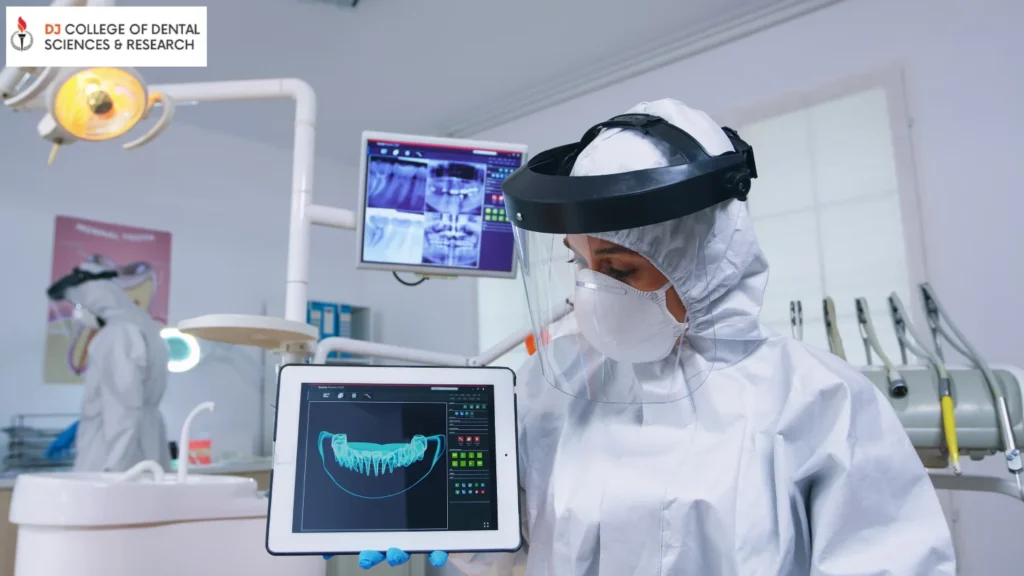Every prosthodontist knows that complications can, and do, happen. Whether you’re just stepping into postgraduate training or already treating patients, issues like chipping, fractures, and occlusal imbalances are common hurdles in fixed and removable prosthodontics. The question is not if these will occur, but when, and more importantly, how well you’re prepared to manage them.
This is especially relevant for students pursuing an MDS in Prosthodontics, where dealing with clinical failures is just as vital as learning to plan and execute treatment. The ability to handle prosthodontic complications calmly and effectively is a skill that develops with experience, mentorship, and most importantly, critical thinking.
Table of Contents
ToggleThe Problem with Chipping: Why It Happens and What to Do
Porcelain chipping is probably one of the most frustrating issues both for clinicians and patients. You may have followed every step by the book, but still, a few weeks or months later, the patient returns with a piece of ceramic missing from their crown.
So what’s going wrong?
Chipping can result from several factors: poor occlusal design, insufficient support, incompatible materials, or simply an unbalanced bite. At times, the issue might trace back to how the patient chews, bruxes, or uses the prosthesis for things they shouldn’t, like cracking nuts.
In your MDS in Prosthodontics journey, you’ll be exposed to countless real-world cases like this. Handling them starts with clear diagnosis. Was it material fatigue? Was it a high point on occlusion? Or was it a technical fault in lab processing? The key lies in breaking the case down and not rushing to redo the crown without first correcting the underlying cause.
Fractures: When It’s More Than Just a Chip
Fractures, particularly in removable prostheses, are another everyday concern. Acrylic bases cracking down the midline, connectors snapping in metal frameworks, these aren’t just random accidents. There’s almost always a reason.
Common causes include:
- Poorly distributed occlusal forces
- Thin design of denture base or framework
- Lack of relief in the palatal area
- Unnoticed flexure during function
If you’re aiming for an MDS in Prosthodontics, understanding the mechanical behaviour of your prosthesis is essential. It’s not just about how it fits during insertion, but how it performs under chewing pressure over time.
In such situations, repair might be a temporary fix. However, long-term success demands design correction. This could mean reinforcing with metal mesh, rebalancing occlusion, or even changing the entire framework design.

Occlusion: The Most Overlooked Complication
Among all the issues that arise, occlusal discrepancies are often the silent culprits. They may not cause immediate failure, but they slowly lead to complications like TMJ discomfort, muscle soreness, or prosthesis breakage.
One of the best skills you can develop during your Prosthodontics MDS training is occlusal awareness. Knowing when to adjust, how to equilibrate, and where the load paths are misdirected is a lifelong clinical asset.
For instance, if your full mouth rehabilitation patient complains of generalised tooth sensitivity or discomfort in the muscles, look beyond the prosthesis. Check occlusion in static and dynamic movements. Has anterior guidance been re-established correctly? Is there any non-working side interference?
These are the subtle but powerful checks that separate a routine clinician from a truly competent prosthodontist.
Patient Factors: Behaviour and Maintenance
It’s worth noting that not every complication is a technical failure. Patient behaviour plays a huge role in the success or failure of prostheses.
Some patients neglect hygiene, wear dentures incorrectly, or chew on hard substances out of habit. Others suffer from parafunctional habits like bruxism, which place abnormal forces on restorations.
During your MDS in Prosthodontics, you’ll learn the value of thorough patient education. In fact, long-term success often depends more on what the patient does at home than what you did in the clinic. Providing night guards, recommending dietary changes, and reinforcing denture care routines can dramatically reduce failures.
Managing Expectations: Communication is Key
Managing prosthodontic complications isn’t just about the technical fix. It’s also about managing expectations, both your own and your patient’s.
Some chipping might be inevitable in long-span ceramic bridges. Removable prostheses may need periodic relining or adjustments. And some occlusal adjustments may require revisiting over months.
As you progress through your Prosthodontics MDS, you’ll realise that setting realistic expectations from the start is half the battle won. Explain the limitations of materials. Discuss the possibility of wear and minor repairs. Patients appreciate honesty and feel more prepared when setbacks occur.
Clinical Audit: Learn from Every Case
One of the most effective habits you can build is reviewing your own cases. Keep records. Note the design used, materials chosen, occlusion type, and any follow-up complaints. A year down the line, you’ll have valuable insight into what works and what doesn’t in your hands.
Postgraduate training isn’t just about learning from mentors but also from your own outcomes. Your MDS in Prosthodontics is the ideal time to form this habit, supported by faculty and feedback.
Final Thoughts
Complications in prosthodontics are part of the journey. Whether it’s a chipped veneer, a fractured base, or a confused bite, each issue carries a lesson. The good news? Each one is manageable, often preventable, and always an opportunity to grow as a clinician.
If you are considering a Prosthodontics MDS, know that managing complications is not a sign of failure. It’s a normal part of practice, and your ability to handle these with logic, calm, and empathy is what defines you.
The more you engage with the problem, rather than avoid it, the more skilled and confident you become.
Because ultimately, it’s not just about fixing teeth. It’s about solving problems with your mind, your hands, and your heart.







